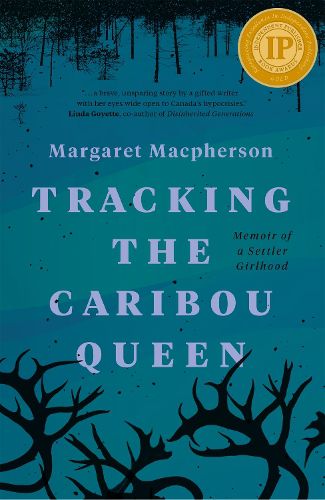Readings Newsletter
Become a Readings Member to make your shopping experience even easier.
Sign in or sign up for free!
You’re not far away from qualifying for FREE standard shipping within Australia
You’ve qualified for FREE standard shipping within Australia
The cart is loading…






In this challenging memoir about her formative years in Yellowknife in the 60s and 70s, author Margaret Macpherson lays bare her own white privilege, her multitude of unexamined microaggressions, and how her childhood was shaped by the colonialism and systemic racism that continues today. Macphersons father, first a principal and later a federal government administrator, oversaw education in the NWT, including the high school Margaret attended with its attached hostel: a residential facility mostly housing Indigenous children. Ringing with damning and painful truths, this bittersweet telling invites white readers to examine their own personal histories in order to begin to right relations with the Indigenous Peoples on whose land they live. Tracking the Caribou Queen is beautifully crafted to a purpose: poetic language and narrative threads dissect the trope that persisted through her girlhood, that of the Caribou Queen, a woman who seemed to embody extreme and contradictory stereotypes of Indigeneity. Here, Macpherson is not striving for a tidy ideal of reconciliation; what she is working towards is much messier, more complex and ambivalent and, ultimately, more equitable.
$9.00 standard shipping within Australia
FREE standard shipping within Australia for orders over $100.00
Express & International shipping calculated at checkout
In this challenging memoir about her formative years in Yellowknife in the 60s and 70s, author Margaret Macpherson lays bare her own white privilege, her multitude of unexamined microaggressions, and how her childhood was shaped by the colonialism and systemic racism that continues today. Macphersons father, first a principal and later a federal government administrator, oversaw education in the NWT, including the high school Margaret attended with its attached hostel: a residential facility mostly housing Indigenous children. Ringing with damning and painful truths, this bittersweet telling invites white readers to examine their own personal histories in order to begin to right relations with the Indigenous Peoples on whose land they live. Tracking the Caribou Queen is beautifully crafted to a purpose: poetic language and narrative threads dissect the trope that persisted through her girlhood, that of the Caribou Queen, a woman who seemed to embody extreme and contradictory stereotypes of Indigeneity. Here, Macpherson is not striving for a tidy ideal of reconciliation; what she is working towards is much messier, more complex and ambivalent and, ultimately, more equitable.